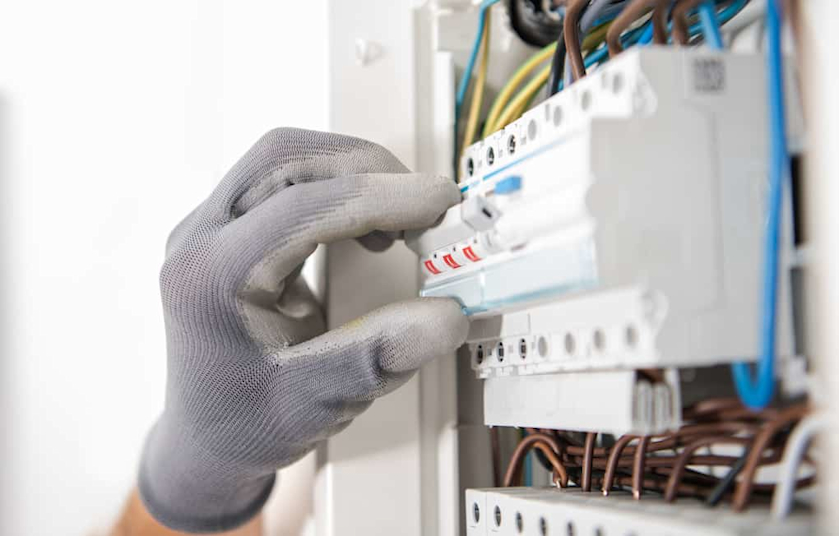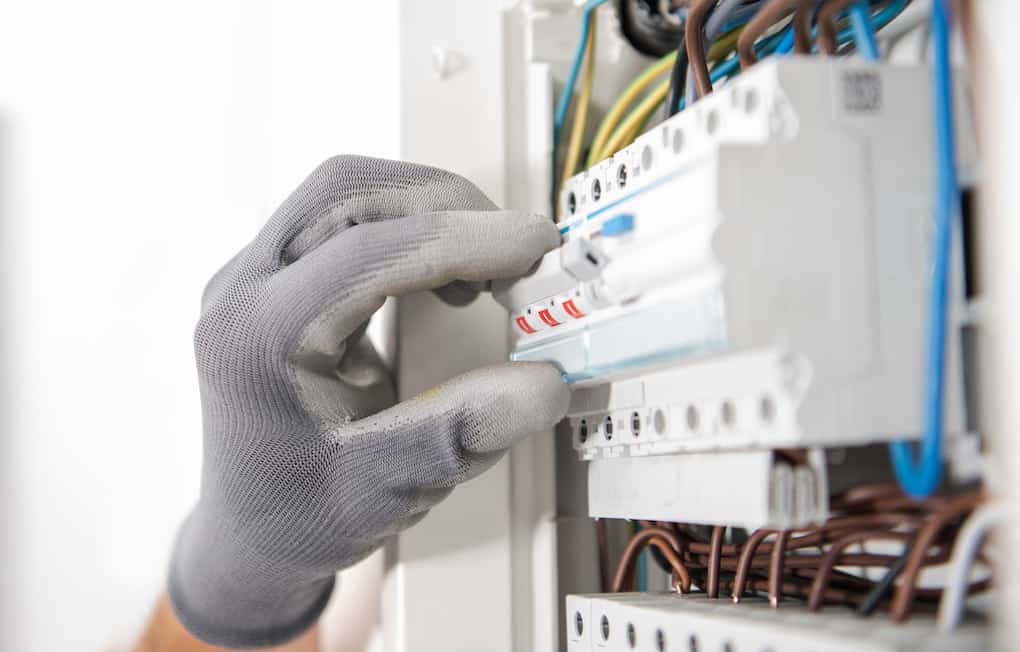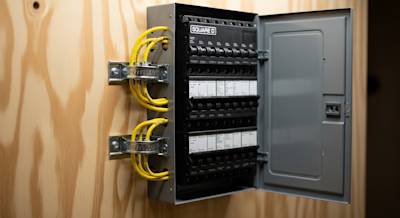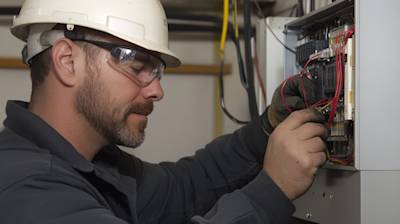Can you visualize a day without electricity, where no electronic gadgets and devices function? Chances are, you cannot. Our dependency on electricity is so profound that even a minor glitch ignites unease. Consequently, understanding electrical components such as a 'Fuse Panel' is crucial. You never know when you might have to deal with a faulty fuse panel.
Understanding the Basics of a Fuse Panel
Let's initiate our journey by gaining insights into what a fuse panel is. In simple words, a fuse panel is a component of an electricity supply system, which separates electrical power feed into subsidiary circuits. It safeguards the wiring against the risk of overheating.
Importance of a Fuse Panel
Main Function of a Fuse Panel
Fuse containers are essentially the core of your electrical system.
- It receives power from the electric company and distributes it to different circuits in the house.
- The circuits powered by the fuse panel are responsible for operating every electrical application in your home, right from your air conditioner to your lights.
- Most importantly, a fuse panel offers protection against overheating which can lead to fatal accidents.
Maintaining Safety Measures
The invaluable role the fuse panel plays mandates being well-versed with the safety measures.
Issues with Fuse Panels
While a fuse panel operates silently behind the scenes, they aren’t immune to problems. Aging of a fuse panel or any kind of faulty wiring can prompt an array of serious issues.
When To Check Your Fuse Panel
Signs of Trouble
- Any visible damage should immediately be attended to.
- Frequent fuse blows or circuit breaker trips.
- Signs of fire in your fuse box, such as dark smudges or smoke.
Choosing Perfect Fuse Panel
When it comes to choosing a fuse panel, you must consider load capacity, the number of circuits, size, and other factors.
Vital Factors to Remember
- Your fuse panel should comfortably accommodate the size and number of wires that will be connected to it.
- Choose a higher load capacity than you currently need. This allowance will make it easier to incorporate additional appliances or circuits in the future.
- The fuse panel must adhere to safety guidelines and compliances.
Professional Assistance
The electrical intricacies extend beyond the layman’s knowledge. Getting professional help to troubleshoot an issue or install a new one ensures that the task is handled with expertise.
Say No to DIY for Fuse Panel
The Internet is chock-full of DIY guides. However, when it comes to tasks such, tampering with a fuse panel, they are best left to professionals. In a modern world, where our electricity needs are constantly expanding, it becomes crucial to understand and appreciate the unsung hero of our electrical system - the fuse panel. With the right knowledge and assistance, you can be sure that your house will be safe and well-illuminated for years to come.
Frequently Asked Questions About Fuse Panels
What is the main function of a fuse panel?
The primary function of a fuse panel is to control and distribute electricity throughout a building or vehicle. Each circuit is protected by a fuse, a device that trips or 'blows' if the circuit is overloaded, preventing potential damage or fires.
What is the difference between a fuse panel and a breaker box?
A fuse panel and breaker box both serve the same fundamental purpose: controlling and distributing electricity. However, a fuse panel uses fuses – small devices that melt or 'blow' when overloaded. On the other hand, a breaker box employs switches that trip when overloaded and can be reset manually after the overloading issue has been resolved.
How do I know if my fuse panel has blown a fuse?
If your fuse panel has blown a fuse, there will be signs. You might notice a specific area in your home or vehicle where the electrical devices have ceased to function. In some cases, you may also observe a burnt smell from the fuse panel. To confirm, visually inspect the fuses in your fuse panel. A blown fuse will typically have a broken or burned wire.
How often should I inspect my fuse panel?
It's good practice to inspect your fuse panel every three months. However, if you encounter frequent electrical issues, like flickering lights or malfunctioning appliances, it is advisable to inspect the fuse panel more often.
Will a faulty fuse panel impact my energy bills?
Yes, a faulty fuse panel could potentially increase your energy bills. If a fuse panel is malfunctioning, it can result in your electrical system drawing more power than necessary, leading to a rise in energy consumption and, consequently, higher energy bills.
How safe is it to replace a fuse in a fuse panel myself?
While it is technically possible to replace a fuse yourself, it is highly recommended to hire a professional electrician to ensure safety. If you lack the expertise and training required, attempting to replace a fuse could result in electrical shocks or other hazards. Always keep safety in mind when dealing with electrical systems.
What should I do if my fuse panel is constantly blowing fuses?
If your fuse panel is frequently blowing fuses, this could indicate an underlying issue with your electrical system or appliances, such as overloading or short-circuiting. In such cases, it would be best to consult with a professional electrician who can diagnose and solve the problem.
What is the lifespan of a fuse panel?
The lifespan of a fuse panel can vary greatly depending on its usage and maintenance. Generally, a well-maintained fuse panel can last around 20 to 30 years. The quality of the fuses used and the conditions in which the panel operates can also impact the lifespan.
Does my home insurance cover a faulty fuse panel?
Home insurance policies may cover damage or loss due to a faulty fuse panel, but this varies by provider and policy details. It's advisable to read through your policy documents or get in touch with your insurance provider for clarified information if you have concerns over a faulty fuse panel.
Is it necessary to upgrade from a fuse panel to a circuit breaker panel?
Upgrade from a fuse panel to a circuit breaker panel is not always necessary but can bring about several benefits. Circuit breakers provide more convenience as they can be reset after tripping, while fuses must be replaced. Additionally, circuit breaker panels can handle larger electrical loads, which is helpful if you need to power numerous modern appliances.
Pros and Cons of Fuse Panels
Advantages of Fuse Panels
Superior Overcurrent Protection
- Fuse panels are known for offering superior overcurrent protection compared to circuit breakers. When overcurrent occurs, the fuse will melt to disrupt the electrical flow, thus protecting the circuit from damage.
Cost-Effective
- Another benefit of fuse panels is their cost-effectiveness. Installing a new fuse panel or replacing an old one is typically less expensive than other electrical panel options like circuit breakers.
High Prevalence in Older Homes
- Many older homes have pre-existing fuse panels. This higher prevalence means that technicians with experience on these systems can be more readily available.
Simple Operation
- The operation of a fuse panel is inherently simple. There are less moving parts involved, which can lead to reduced chances of malfunctioning.
Disadvantages of Fuse Panels
Non-Resettable
- One of the main drawbacks of fuse panels is that once a fuse has melted because of overcurrent, it cannot be reset. Instead, it has to be replaced with an entirely new one, which can be inconvenient and time-consuming.
Potential for Incorrect Fuse Usage
- An additional con of fuse panels lies in potential user error. Uninformed users can inadvertently replace a blown fuse with another that has a higher amperage rating, which can defeat the overcurrent protection and potentially lead to extensive system damage.
Deterrent to Potential Home Buyers
- Many home buyers today prefer homes with modern circuit breakers due to their more advanced technology and ease of use. Having a fuse panel installed could potentially act as a deterrent to potential homebuyers.
Insufficiency for Today’s Electrical Load
- On a practical scale, fuse panels might simply not be able to handle the electrical load required by today’s high-powered appliances and technologies. This can result in frequently blown fuses and the need for frequent replacements.
Lack of Ground Fault Circuit Interrupter (GFCI)
- Fuse panels generally don’t have built-in GFCI capabilities. This safety measure, commonly found in modern circuit breakers, is designed to protect against electrical shock caused by ground faults or leaking electrical current.
While fuse panels have some notable benefits such as cost-effectiveness and simple operation, they also come with significant drawbacks. These include non-resettable fuses, the potential for incorrect fuse usage, being seen as a potential deterrent for homebuyers, being insufficient for today's electrical load, and lack of GFCI. Therefore, the decision to install or maintain a fuse panel should be made after weighing these factors carefully.
Summary
The fuse panel is at the heart of your home's electrical system. It works tirelessly to regulate the amount of electrical flow and make sure each section of your house gets the power it needs. If anything goes wrong - an overload, a short circuit, anything at all - the fuse panel steps in to cut off the power and protect your home from an electrical fire. Thus, having a well-functioning and well-maintained fuse panel is essential for keeping our homes safe and sound.
If you've been experiencing flickering lights, appliances that don't work, or you've had to replace fuses more often than normal, it might be time to have your fuse panel inspected. These could be signs that your fuse panel is failing. Remember, if you're not comfortable doing this yourself, it's best to leave it to a professional. After all, dealing with electricity comes with its own set of risks, especially if you're not trained for it.
At the end of the day, the fuse panel is like the guardian of your home. It keeps watch over your electrical system, ready to intervene the moment something goes wrong. Yet like any other piece of equipment, it needs to be taken care of and inspected regularly. It's the best way to avoid any potential incidents and keep your home, and everyone in it, safe.
About Sagan Electric
Welcome to Sagan Electric, your number one trusted electric service company in Sacramento, CA! We are passionate about delivering top-notch electrical services to our customers. Whether you need a minor electrical repair, full-house rewiring or installation of new electrical systems, our professional and skilled team is here to serve all your electrical needs. We're renowned for our commitment to quality workmanship, safety and competitive pricing. So why wait? Give Sagan Electric a call and experience stellar customer service that speaks for itself.
Tags: electricity, home maintenance, circuit breakers,








